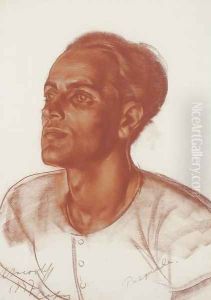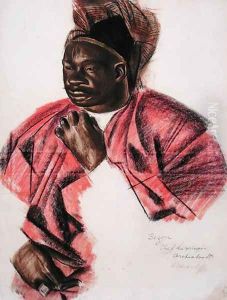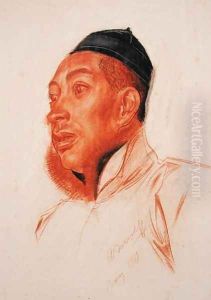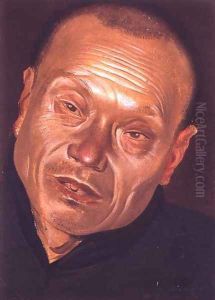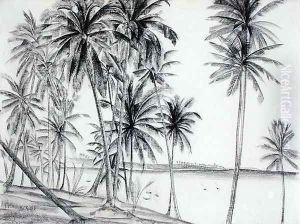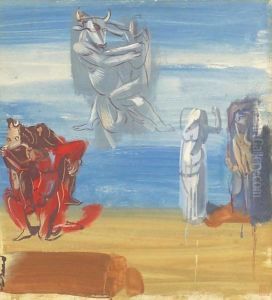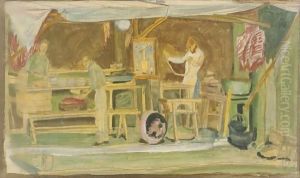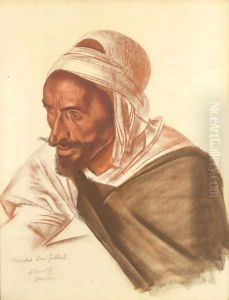Alexander Evgenevich Iacovleff Paintings
Alexander Evgenievich Iacovleff, or Alexandre Iacovleff, was an artist of considerable renown, whose life and work spanned across continents, deeply influenced by his travels and the cultural diversities he embraced. Born on July 25, 1887, in St. Petersburg, Russia, Iacovleff was a figure whose artistic journey reflected the tumultuous times and places through which he lived. His early life in Russia, where he was exposed to the rich cultural and artistic heritage of his homeland, laid the foundation for his expansive career. He studied at the Imperial Academy of Arts in Saint Petersburg, where he honed his skills and developed a keen eye for detail and a profound appreciation for the aesthetic.
His career took a significant turn when he participated in the Citroën Central Asian Expedition of 1931-1932, also known as the Croisière Jaune or Yellow Cruise. This expedition, which aimed to cross Asia from Beirut to Beijing by automobile, provided Iacovleff with a plethora of subjects and scenes to depict. He served as the official artist for the expedition, documenting the landscapes, peoples, and cultures encountered along the journey. The works he produced during and after this expedition are among his most celebrated, capturing the essence of the diverse environments and societies he observed with a remarkable blend of realism and sensitivity.
Iacovleff's oeuvre is characterized by a wide range of subjects, including portraits, landscapes, and scenes of daily life, showcasing his versatility and adaptability as an artist. He had a particular talent for portraiture, with a unique ability to capture the personality and spirit of his subjects. His art is noted for its meticulous detail, vibrant colors, and the seamless integration of various cultural influences, reflecting his experiences and travels.
The latter part of Iacovleff's career was marked by his move to France, where he continued to work and exhibit his art. Despite the challenges posed by the political and social upheavals of his time, including the Russian Revolution and World War I, Iacovleff managed to maintain a prolific output. He became a naturalized French citizen in 1927, further solidifying his ties to the country that had become his second home.
Alexander Iacovleff's life came to a premature end when he passed away on May 12, 1938, in Paris, France. His death marked the loss of a unique artistic voice that had bridged East and West, traditional and modern. Today, his works are held in high regard, preserved in museums and private collections around the world, serving as a testament to his talent and his extraordinary ability to capture the beauty and diversity of the human experience.
